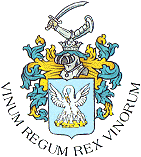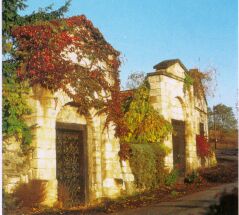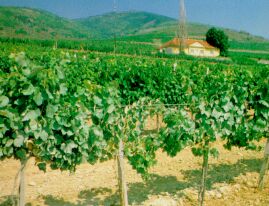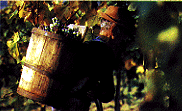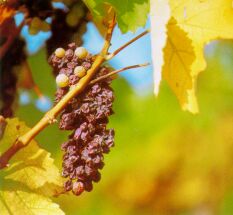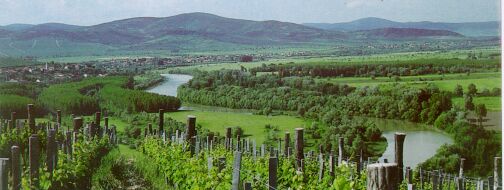Though Tokaj aszu is only 10 to 30 % of the
whole Tokaj production - most of the production
is lesser-quality table wine - the intention of
foreign investors to add sulfites to the wine,
rather than pasteurize it, to prevent
re-fermentation, raised a lot of commotion. The
old way was to let the wine in barrels for more
than three years and not aging it in bottles
after this time. Disznoko officials say the
barrels add an inconsistent wooden flavor that
Western consumers dislike.
All quality wines have to get the approval of the
National Wine Experts Committee.
"Foreign investors produced very perfumed
new wine styles like the Tokaj Furmint and
Harslevelu (dry white wines) through speeded up
reductive methods," said Andras Urban.
"But the quickly matured aszus didn't get
our approval. We still argue with new owners. We
have made aszus for more than 3 centuries. We
don't want them be confused with other liquorous
wines."
"In '95, when the National Wine Experts
Committee refused of our '92 aszu, some
newspapers articles [published in France] - which
we didn't want at all - irritated many
people," said Dominique Arangoits, general
director of Disznoko Kft. The articles reported
that Disznoko's wine had not been certified.
"But after our second presentation in front
of the committee, 70% of our wine was accepted in
a most normal fashion, due to these
articles."
Nevertheless other wine specialists like Jozsef
Domotor, production manager at the Grape -Wine
Council, an association representing the interest
of its 114 members, small wine makers or sellers,
to the Agriculture Ministry,
|
who said that: "The French reductive technology is new for
Tokaj Hegyalja. I think this is the right path to
follow."
"We have divergent opinions concerning
the way to produce aszu," countered Laszlo
Gerwald, general director of the Tokaj
Kereskedohaz Rt. (Trading House Company).
"We keep the aszu in barrels for as many
years as its puttonyos plus two years. It may not
be good business, but we stick to traditions. May
the best win!"
Disznoko won the silver medal with their '92 wine
at the National Wine Festival in Budapest and the
gold medal at the local competition in Tarcal.
"This recognition reassured us," said
Arangoits. "It meant the Hungarians
recognized our wine as Hungarian wine."
But Attila Talos, director of the Wine Society in
Budapest, said, "Things are not black and
white. We sold the 1988 Bor Kombinat aszu in
England and the feedback was terrific. But it
seems that clients prefer the new reductive
wines."
In '95 14 grand crus (superior wine) producers
established the Tokaj Renaissance association to
promoteTokaj wine. "We have a common need
for promotion marketing activity since the wine
has to be newly introduced at home and
abroad," said its president Andras Bacso,
also the director of Spanish-owned wine company
Oremus. They participate to international and
regional wine exhibitions, and organize wine
tastings.
"We got many people to taste the wine,"
says Jean-Michel Cazes, director of Disznoko Kft.
"We make wines in Bordeaux, in Portugal and
in Burgundy, and clients listen to us when we say
that we also have a good wine in Tokaj."
|

